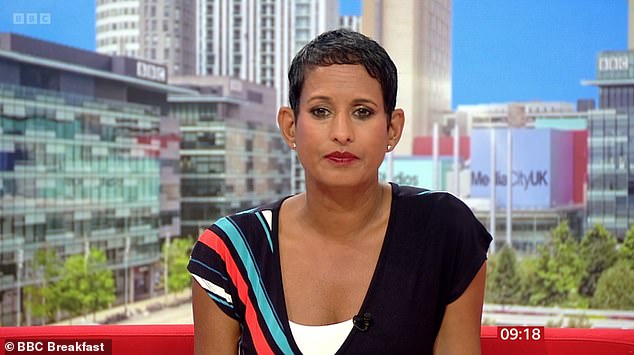Naga Munchetty: A Key Figure in Modern Journalism

Introduction
Naga Munchetty is a name that has become synonymous with credible journalism in the UK. As a prominent BBC presenter, she plays a vital role in informing the public on current events while advocating for diversity in media. Understanding her journey and contributions is essential, not only for those interested in journalism but for anyone keen on the evolving landscape of British media.
Early Career and Rise to Stardom
Born on February 25, 1975, in Streatham, London, Naga Munchetty’s career in journalism began after she graduated from the University of Leeds with a degree in English and Arts. She initially pursued a career in finance before transitioning into journalism, starting her journey at the BBC in 2008. Munchetty quickly gained recognition for her incisive interviewing style, often tackling complex political issues with clarity and precision. Her early roles included reporting for BBC News and presenting on BBC Breakfast.
Significant Contributions
Naga is particularly well-known for her work on ‘BBC Breakfast’, where she has habitually engaged with a multitude of topics, from politics to social issues. Her ability to connect with viewers has made her one of the most respected figures on morning television. In addition to her presenting role, Munchetty has also contributed to various high-profile documentaries, focusing on key issues affecting modern society, including race relations and mental health.
Challenges and Advocacy
Despite her success, Naga Munchetty has faced challenges, particularly regarding discussions on race and representation in media. She became a focal point during events surrounding the Black Lives Matter movement and has been vocal about the importance of diverse narratives in journalism. In 2020, her remarks on racism during a live segment led to a significant discussion within the BBC regarding editorial standards and the workplace culture related to race.
Conclusion
Naga Munchetty continues to be a role model for aspiring journalists, particularly women and individuals from minority backgrounds. As she progresses in her career, her commitment to diversity and impactful reporting seems likely to inspire a new generation of reporters. Her influence extends beyond the screen, propelling necessary conversations about inclusivity within the media landscape. For viewers, her presence on the BBC remains a significant assurance of quality journalism.









